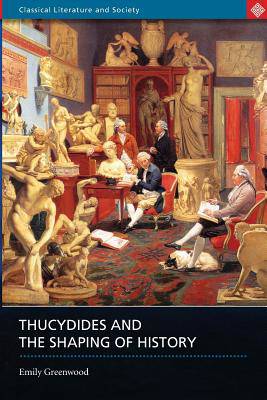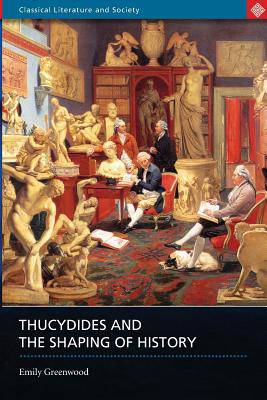
- Afhalen na 1 uur in een winkel met voorraad
- Gratis thuislevering in België vanaf € 30
- Ruim aanbod met 7 miljoen producten
- Afhalen na 1 uur in een winkel met voorraad
- Gratis thuislevering in België vanaf € 30
- Ruim aanbod met 7 miljoen producten
Omschrijving
Thucydides' work was one of the most exciting creations in the cultural history of Greece in the fifth century BC and it still poses fresh and challenging questions about the writing of history. There is a marked tension in Thucydides' History between his aim to write about contemporary events and his desire that his work should outlast the period in which he composed it. Thucydides and the Shaping of History addresses two important issues: how contemporary was the History when it was written in the fifth century, and how 'contemporary' is it now? This book combines a close analysis of Thucydides' narrative with a discussion of its intellectual motivation; it examines how the historian attempted to determine the way in which readers would respond to his conception of the events of the Atheno-Peloponnesian War, and to ensure the continuing influence of his ideas.
Specificaties
Betrokkenen
- Auteur(s):
- Uitgeverij:
Inhoud
- Aantal bladzijden:
- 192
- Taal:
- Engels
- Reeks:
Eigenschappen
- Productcode (EAN):
- 9780715632833
- Verschijningsdatum:
- 21/12/2005
- Uitvoering:
- Paperback
- Formaat:
- Trade paperback (VS)
- Afmetingen:
- 156 mm x 233 mm
- Gewicht:
- 317 g

Alleen bij Standaard Boekhandel
Beoordelingen
We publiceren alleen reviews die voldoen aan de voorwaarden voor reviews. Bekijk onze voorwaarden voor reviews.







